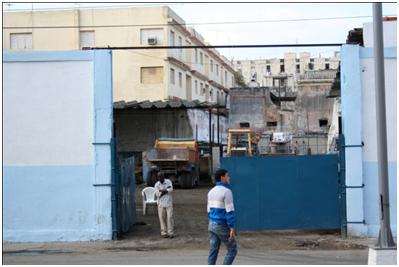
Photo: State watchman, by Orlando Luis Pardo
The meetings have started between the leaders of State institutions and their workers, to report on the process for reducing the payrolls, which is expected to be completed in the first trimester of the coming year.
The directors of the State agencies have announced to the workers that advisory committees are being created, charged with the selection of the qualified personnel who will keep their jobs. In the week just ended, the Ministry of Labor and Social Security (MTSS) in Arroya Naranjo, the poorest municipality in the capital, declared there to be 1,300 excess workers in the area of Culture.
The “Income Committees,” named such in the labor legislation, are composed of workers assigned by management, the union, the Cuban Communist Party, and the Young Communist Union.
The President of the Councils of State and of Ministers, General Raul Castro, warned in the last session of the National Assembly, that there would be strict “observance of the principle of demonstrated suitability when it comes time to decide who has the greatest right to occupy a position.”
According to the Labor Code, the state government may terminate the employment contract for, among other causes, ineptitude, lack of suitability, or a declaration of lack of need for the position. Resolution No. 8, “General Regulation on Labor Relations,” issued in May 2005 by the Ministry of Labor and Social Security, governs the treatment of wages in these cases.
Trade unions and governments, by mutual agreement, decide on techniques and procedures used to determine the permanence of workers in their employment. The commission recommended, and the Chief of the entity confirmed, the loss of “Demonstrated Suitability.”
When a worker is declared unsuitable, the administration of the entity will facilitate their relocation and guarantee them a fixed salary for two months from the date they cease working at their job.
So far the relocations have been in agriculture and construction, sectors with a chronic shortage of workers and where the majority of Cubans refuse to work. If the worker doesn’t accept the offer, the labor relationship is terminated, without the right to receive any salary payments.
Workers are feeling insecure. Many say that the state salary, although insufficient, is the only source of income they have to pay their share of the costs of subsidized food and electricity.
Most families, some with debts to the bank over 10 years old, are paying a percentage of their salary in monthly installments for the appliances they received in the “energy revolution.”
